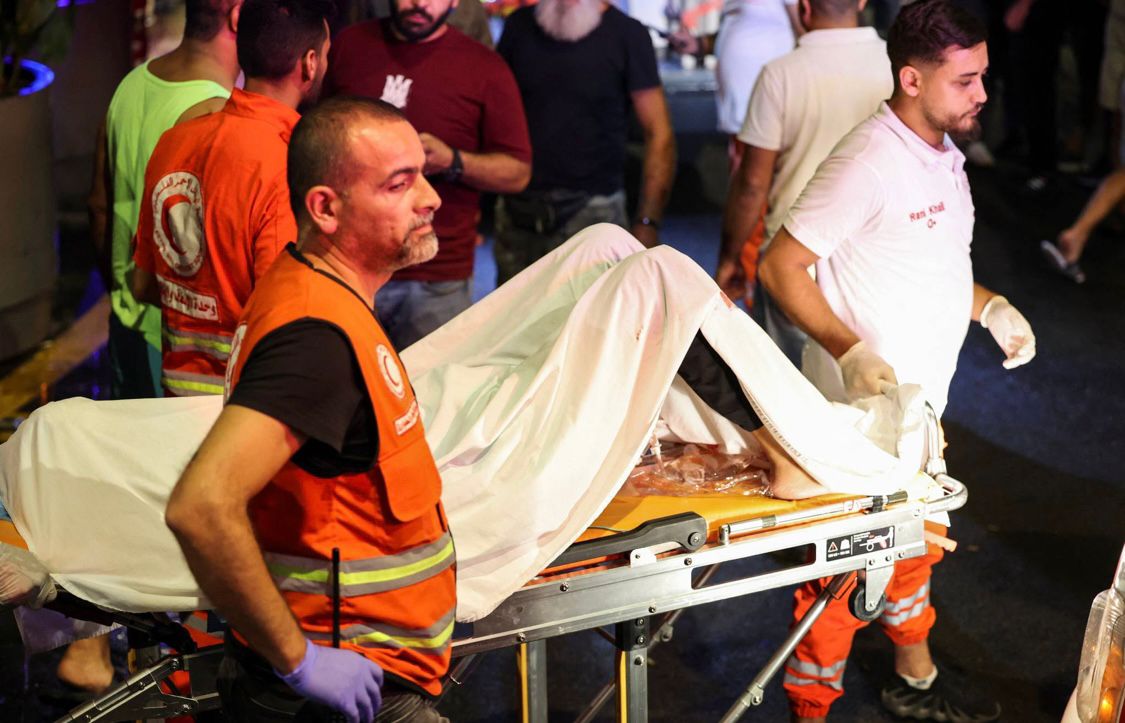Amid the darkness of the war between Israel and Hezbollah, Lebanon's 'unity and humanity' shines
As the war escalates, a surge of solidarity, empathy and compassion ties Christians and Muslims. Doctors and nurses work tirelessly to treat the victims of explosions and take in those forced to flee their homes. Faced with the "unacceptable" massacre of civilians by Israeli fighter jets, the Lebanon of "living together" exists beyond politics.
Beirut (AsiaNews) – Lebanon is offering an exemplary lesson in humanity and unity to Israel, Iran, and Hezbollah, through the outpouring of solidarity, empathy, and compassion in this time of war, which, since September 17, has delivered its share of dead, wounded, and displaced.
Faced with the horror of faces disfigured by exploding pagers and walkie-talkies, 500 of whom will not recover their eyesight, doctors and nurses kept vigil on 17 and 18 September until dawn, until they gave out, exhausted. Others tried the impossible, reconstructing faces, saving eyes, repairing lips and noses, and sowing fingers back together – the first responders, the first heroes of rediscovered national solidarity.
“The scene in the operating rooms was unbearable," said one eye specialist, on condition of anonymity. With his colleagues, he stayed up all night to treat people who were blinded, deafened, disfigured, burnt by devices that exploded in their faces, severed their fingers, and amputated their hands.
"Sometimes, the whole face was gone," said this friend, still amazed by all this evil born in a flash, who deplores the "collateral victims" of these explosive traps, children, hospital staff, complete strangers, often as deeply affected as the owners of the booby-trapped devices.
In addition, since 23 October, the “dance macabre” of Israeli F-35s flying unimpeded in Lebanese airspace targets, relentlessly and mercilessly, Hezbollah's alleged military assets, as well as the homes of Shia residents, the vast majority of whom support the group.
This massacre, deemed "unacceptable" by the Pope, has left 558 people dead so far, including 50 children and 94 women, a toll rising every day and every hour, and no one knows when the count will stop.
Tens of thousands of people have taken to the road, often in exacting conditions, fleeing the murderous "data bank" of Israel’s air force.
Travelling into the interior, they have been taken in, at the end of a journey made exhausting by road jams, with an eagerness imbued with oriental hospitality, in public and private urban reception facilities, particularly in Saida, Beirut, and Tripoli. The luckiest ones found their way into the homes of relatives. The most fearful pushed on, as far as Syria.
In a way, in the face of Iran’s military doctrine of "unity of fronts" that dictated Hezbollah's entry into the war against Israel, Lebanon was able to wield the supreme and peaceful weapon of its own unity.
Of course, this extraordinary outpouring of solidarity has not, and cannot erase, the deep political disagreements among the Lebanese over Hezbollah's military initiative that brought them this great misfortune. But we have shown the world that fundamental disagreements stop at the threshold of suffering, grief, and human tragedy.
“The death of human empathy is one of the earliest and most telling signs of a culture about to fall into barbarism,” wrote Jewish philosopher Hannah Arendt.
In a sense, we have proven to the world that a Lebanon of "living together" does exist, and that it goes deeper than politics, that it is rooted in a soil of patriotism which is not an empty word nor cheap sentimentalism. What has happened and is still happening should help us believe in ourselves. Sectarian segregation is the antithesis of Lebanon.
This is a strong argument against those who regret that Greater Lebanon was not conceived from the outset as a "Christian home" rather than as a land of Islamic-Christian conviviality.
It is too late today to ask this question of pure complacency, at a time when Francis travels the world to plead the cause of conviviality. Are we sure that this path would have ensured Lebanon a brighter future, in a regional environment over which we have no control?
Let us hear Pierre Rondot, a great specialist of the Middle East: “By losing its mixed character, Lebanon would become a sort of Christian enclave in the East whose relations with the rest of the Arab world would likely be difficult; one may even wonder whether under these conditions it would still be able to preserve its natural, yet very fruitful role as a link between East and West.
“But above all, it would mean the abandonment of a formula of parity and Islamic-Christian symbiosis, a formula which, as we have said, to a certain extent has paralysed Lebanon’s modern development, but which has the great merit of proving that such an understanding is possible and of offering an example of incalculable moral significance.
“If we gave up on this symbiosis, would it not mean accepting a deliberate step backward towards religious segregation, in the only area of the East where it has always been traditionally excluded?” (*)
Greater Lebanon is a risky bet but remains a viable option. It calls for exceptional leaders – visionary, dedicated, honest, and skilful. It is up to us to elect them as soon as possible.







.png)










